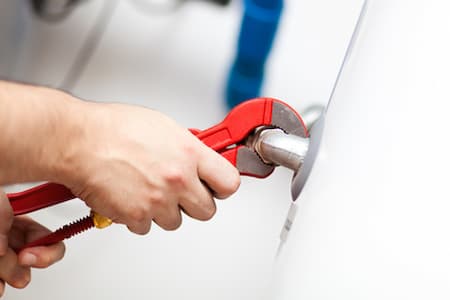Water Heater Repair or Replacement? A Simple Birmingham Homeowner Flowchart

Your water heater plays a quiet but essential role in your daily life—until it stops working. From morning showers to evening dishwashing, you depend on it for comfort and convenience. So when it starts acting up, the big question is: should you repair it or replace it? At Got Plumber?, we’ve created a simple way for Birmingham homeowners to make that decision with confidence.
Step One: Diagnose the Problem
Before calling for service, take a moment to identify what’s happening. Here are a few signs of a failing water heater that you can look out for:
-
Inconsistent Water Temperature: If your hot water runs out quickly or fluctuates between hot and cold, the heating element or thermostat may be wearing out.
-
Strange Noises: Popping, rumbling, or banging sounds often point to sediment buildup hardening inside the tank.
-
Discolored or Rusty Water: Corrosion inside the tank or pipes can cause water to appear brown or orange.
-
Leaks or Moisture Around the Tank: Even small puddles or damp spots can signal a failing seal or tank rupture.
-
Reduced Hot Water Pressure: Mineral buildup or internal corrosion can restrict flow and lower water pressure.
- Age Over 10 Years: Most traditional water heaters have a lifespan of about a decade—anything beyond that increases the risk of failure.
Knowing what you’re dealing with helps your plumber determine whether a simple water heater repair will restore performance or if a replacement is the smarter move.
Step Two: Consider the Age and Efficiency
If your water heater is more than 8–12 years old, replacement is often the best choice. Even if repairs can fix the immediate problem, older units tend to become less efficient, driving up your energy costs. Modern water heaters are designed to heat faster, use less energy, and provide more consistent temperatures. However, if your system is relatively new and the issue is minor—like a faulty heating element or loose connection—a professional repair could easily extend its lifespan.
Step Three: Evaluate Cost vs. Value
When repair costs reach 50% or more of what a new system would cost, replacement becomes the better investment. A new unit may seem like a higher upfront expense, but it brings long-term benefits such as lower operating costs, warranty protection, and peace of mind.
If you’re unsure, Got Plumber? can help you compare repair and replacement quotes side by side, factoring in your home’s hot water needs and energy efficiency goals.
Step Four: Think About Performance
Has your water heater struggled to keep up lately? Frequent temperature swings or running out of hot water too quickly might mean it’s undersized or outdated. Upgrading to a newer model, such as a high-efficiency or tankless system, ensures reliable performance for years to come.
The Bottom Line
If your water heater is leaking, rusted, or approaching its lifespan, replacement is the clear answer. For newer units with isolated issues, professional repair can save money and restore comfort. We are proud to be the most reliable plumber in Birmingham, offering honest recommendations, quality workmanship, and fast response times. Contact Got Plumber? today to schedule your water heater inspection or service-- we’ll help you determine whether repair or replacement is best for your home and budget.
Need an Experienced Plumber In Chelsea? Don't Wait! Give Us A Call Now!